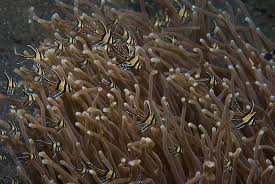Throughout the millennia of Chinese history, various emperors have left an indelible mark on the political landscape, shaping the future of the nation and influencing global geopolitics. From the earliest dynasties to the imperial Qing era, the political direction of China was often determined by the leadership, decisions, and ideologies of its emperors. In this article, we will explore several of the most influential emperors in Chinese history and examine how their actions and policies affected both China and the broader world.
1. Qin Shi Huang (259-210 BCE) – The First Emperor of China
Qin Shi Huang, originally named Ying Zheng, is perhaps one of the most famous and impactful emperors in Chinese history. As the first emperor of the Qin Dynasty, he unified China in 221 BCE after defeating the warring states and established a centralized, bureaucratic government. His reign marked the beginning of imperial China, laying the foundation for many political and administrative systems that lasted for over two millennia.
One of Qin Shi Huang’s most significant political innovations was the standardization of various systems within China. He standardized the currency, weights and measures, and even the written script, promoting greater unity across the empire. He also constructed monumental infrastructure projects, including the first version of the Great Wall of China, intended to protect against northern invaders. However, his authoritarian rule also led to widespread resentment, as he centralized power and harshly punished dissent, leading to the downfall of the Qin Dynasty shortly after his death.
Despite the brevity of the Qin Dynasty, Qin Shi Huang’s political impact cannot be overstated. His establishment of a centralized imperial system set the stage for future Chinese emperors, and his unification of China is a key moment in the country’s history.
2. Emperor Wu of Han (156-87 BCE) – Expanding the Empire
Emperor Wu of Han, also known as Han Wudi, is another highly influential figure in Chinese political history. His reign during the Han Dynasty (141-87 BCE) is often regarded as one of the most prosperous and powerful periods in Chinese history. Emperor Wu’s political acumen, military victories, and reforms greatly expanded China’s territory and influence.
One of his most significant accomplishments was the expansion of the Han Empire. Emperor Wu successfully led military campaigns that stretched China’s borders far beyond what was previously imagined, including the annexation of the Xiongnu territory to the north, the conquest of modern-day Xinjiang, and the incorporation of parts of Korea and Vietnam. His military prowess made China a dominant force in East Asia.
Internally, Emperor Wu implemented several important political and economic reforms. He established state monopolies on salt, iron, and other key industries, increasing the power and revenue of the central government. He also introduced Confucianism as the state philosophy, laying the groundwork for a Confucian-based political system that lasted throughout Chinese imperial history. His centralized government structure and emphasis on meritocracy were key to the stability of the Han Dynasty.
However, his reign was not without challenges. The long-lasting military campaigns drained resources, and the emperor’s reliance on eunuchs and court officials led to corruption in the later years of the Han Dynasty. Despite these issues, Emperor Wu’s contributions to China’s political and territorial expansion were immense.
3. Tang Taizong (598-649 CE) – The Golden Age of the Tang Dynasty
Emperor Taizong of Tang, born Li Shimin, is widely regarded as one of China’s greatest rulers. His reign from 626 to 649 CE marked the peak of the Tang Dynasty, a period of cultural, political, and military dominance in Chinese history. Taizong’s leadership is often praised for its wisdom, military strategies, and the way he balanced power between the central government and regional elites.
One of Emperor Taizong’s most notable achievements was his military success. He expanded China’s influence through campaigns in the west, including the defeat of the Eastern Turks and the expansion of the Tang Empire into Central Asia. His military strategy and governance were instrumental in ensuring the stability of the empire and creating a prosperous trade network along the Silk Road.
Internally, Taizong strengthened the imperial bureaucracy and made several significant political reforms. He was known for his fairness in justice, often seeking advice from his ministers and listening to the concerns of the people. This policy helped foster loyalty among his officials and contributed to the smooth administration of the empire.
Taizong’s reign is often considered a model of effective leadership in Chinese history. His ability to balance military expansion with internal governance made the Tang Dynasty a golden age in Chinese politics.
4. Emperor Kangxi (1654-1722) – The Longest-Reigning Emperor of China
Emperor Kangxi of the Qing Dynasty, who reigned from 1661 to 1722, is often considered one of the most successful and influential emperors in Chinese history. As the longest-reigning emperor in Chinese history, Kangxi’s rule spanned over six decades, during which he consolidated the power of the Qing Dynasty and ensured its dominance in China.
Kangxi’s reign was marked by several key political reforms and military achievements. He successfully dealt with internal rebellions, including the Revolt of the Three Feudatories and the suppression of the Taiping Rebellion, solidifying the Qing Dynasty’s control over China. His military campaigns expanded China’s territorial boundaries, securing control over Taiwan, Mongolia, and Tibet.
Internally, Kangxi introduced administrative reforms that helped stabilize the empire. He reorganized the bureaucracy, encouraged economic growth, and promoted Confucianism as the guiding principle of governance. His ability to maintain stability in such a large and diverse empire was a testament to his political skill.
Kangxi also played a significant role in promoting science and culture, encouraging the translation of Western scientific texts and fostering the development of Chinese arts and literature. His reign is often considered a time of relative peace, prosperity, and intellectual growth, making him one of the most revered emperors in Chinese history.
5. Emperor Yongle (1360-1424) – The Builder of the Ming Dynasty
Emperor Yongle, the third emperor of the Ming Dynasty, ruled from 1402 to 1424 and is known for his ambitious political and cultural achievements. His reign marked the height of the Ming Dynasty’s power, and his leadership transformed China into a global power.
One of Emperor Yongle’s most notable achievements was his commissioning of the construction of the Forbidden City, which became the political center of China for centuries. He also initiated the Yongle Encyclopedia, an immense collection of knowledge that preserved and expanded China’s literary and intellectual heritage.
Politically, Emperor Yongle was known for his military campaigns, including the successful invasion of Vietnam and the establishment of China’s dominance over the region. His military achievements were complemented by his efforts to strengthen the central government and reduce the power of local elites. He also initiated several important diplomatic missions, including sending the famous Admiral Zheng He on voyages that expanded China’s influence across Southeast Asia, the Indian Ocean, and even as far as Africa.
Despite his successes, Emperor Yongle’s reign was marked by political intrigue and power struggles, including his violent rise to the throne. His efforts to consolidate power within the imperial family led to the centralization of authority and the strengthening of the emperor’s role in governing China.
Conclusion
These emperors represent just a few examples of those who had a profound influence on Chinese politics throughout history. Whether through military conquests, political reforms, or cultural achievements, each of these rulers played a pivotal role in shaping the political landscape of China. From Qin Shi Huang’s unification of the country to Emperor Yongle’s global ambitions, these emperors set the stage for China’s political development and left a lasting legacy on the world stage.
Their contributions remind us of the complex interplay between politics, governance, and leadership, and how the actions of one ruler can influence the trajectory of an entire nation for centuries. As China continues to evolve, the lessons learned from these emperors’ reigns remain relevant, providing valuable insights into the enduring power of strong leadership in shaping the future of a nation.










